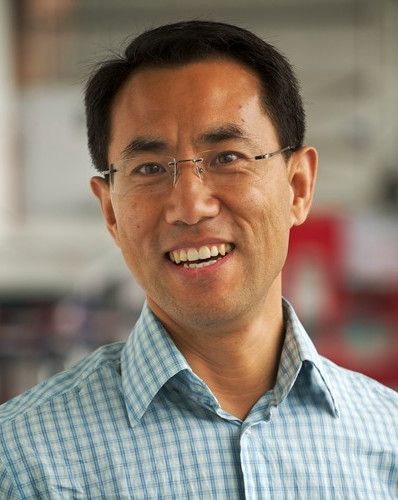
Prof.
Huiyu Zhou
University of Leicester, UK
Biography:
Prof. Huiyu Zhou received a Bachelor of
Engineering degree in Radio Technology from
Huazhong University of Science and
Technology of China, and a Master of Science
degree in Biomedical Engineering from
University of Dundee of United Kingdom,
respectively. He was awarded a Doctor of
Philosophy degree in Computer Vision from
Heriot-Watt University, Edinburgh, United
Kingdom. Prof. Zhou currently is a full
Professor at School of Computing and
Mathematical Sciences, University of
Leicester, United Kingdom. He has received
Distinguished AI Scholar and Exemplary
Awards of NAAI in 2025. His research work
has been or is being supported by UK EPSRC,
ESRC, AHRC, MRC, EU, Innovate UK, Royal
Society, British Heart Foundation,
Leverhulme Trust, Puffin Trust, Alzheimer’s
Research UK, Invest NI and industry.

Prof. Hui Yu
University of Glasgow, UK
Biography:
Hui Yu is a Professor with the University of
Glasgow. He leads the Visual and Cognitive
Computing Group at the university. His
research interests lie in visual and
cognitive computing as well as machine
learning with applications to 4D facial
expression modelling and analysis,
human-machine interaction, intelligent
vehicle, and video analysis. Professor Yu’s
research work has led to several awards and
successful collaboration with worldwide
institutions and industries. He is the
Associate Vice President of IEEE Systems,
Man, and Cybernetics Society and a
Scientific Advisor for some high-tech
companies in the UK. Prof. Yu is the PI on
grants from a diverse range of funding
sources including the EPSRC, EU FP7, RAEng,
Royal Society, Innovate UK and Industry. He
has been awarded Industrial Fellowship by
the Royal Academy of Engineering. He serves
as an Associated Editor for IEEE
Transactions on Human-Machine Systems, IEEE
Transactions on Computational Social
Systems, IEEE Transactions on Intelligent
Vehicles and IEEE/CAA Journal of Automatica
Sinica.